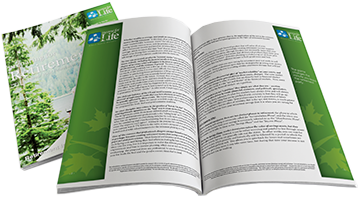Six Reasons a Roth IRA Conversion Could Secure Your Financial Future
Avoid higher taxes in retirement, eliminate RMDs, and leave a tax-free inheritance to your heirs.
A Roth IRA conversion can offer substantial advantages, particularly for those aiming for a tax-efficient retirement strategy. Unlike traditional IRAs, Roth IRAs provide the benefit of tax-free growth and withdrawals, enabling you to potentially achieve significant investment gains that are never subject to taxation. This makes Roth IRAs an attractive option for many individuals as they approach retirement.
The primary distinction between a Roth IRA and a traditional IRA lies in their tax treatment. Traditional IRAs offer a tax deduction on contributions, but withdrawals are taxed later. In contrast, Roth IRAs don’t provide an initial tax deduction, but all withdrawals are entirely tax-free. Additionally, there are no income restrictions on converting to a Roth IRA, making this opportunity available to anyone looking to reap its benefits.
The Backdoor Roth IRA
A backdoor Roth IRA is a strategy that high earners can use to contribute to a Roth IRA despite income limits. This strategy involves making non-deductible contributions to a traditional IRA and then converting those dollars into a Roth IRA.
Here's how a backdoor Roth IRA works:
Contribute to a traditional IRA, preferably a non-deductible one, since there are no income limits on those contributions.
Convert the traditional IRA to a Roth IRA shortly after.
In many cases, the conversion won’t result in a tax bill. However, you’ll need to consider the following:
Taxes
In the year of the conversion, you’ll owe income tax on the entire amount you convert, which will be added to your gross income. The amount of tax you’ll owe depends on your income tax bracket and rate, which was between 10% and 37% in 2024. You should also consider state and local taxes.
Form 8606
You’ll need to file Form 8606 with your tax return in the year of the conversion.
Other costs
You should also consider other potential costs and tax liabilities before proceeding.
You can repeat the process each year if your income still prevents you from contributing to a regular Roth IRA.
Top 6 Reasons to Consider a Roth IRA Conversion
1. Anticipation of a Higher Tax Bracket in Retirement
If you expect to be in a higher income tax bracket during retirement, converting to a Roth IRA now could be beneficial. By paying taxes on your retirement funds at your current lower tax rate, you can enhance tax efficiency and maximize your retirement savings.
Often, it’s challenging to control your tax bracket. During your working years, your income primarily dictates your tax bracket, and in retirement, factors like Social Security and required minimum distributions (RMDs) influence it. RMDs are mandatory withdrawals from traditional IRAs that begin at age 73.
However, the period after retirement but before RMDs commence offers a potential opportunity to lower your tax bracket and take advantage of a Roth IRA conversion. If you can plan to delay Social Security until age 70 and save enough cash for retirement expenses, this window might be ideal for a conversion.
2. No Required Minimum Distributions (RMDs) with Roth IRAs
One significant advantage of a Roth IRA is the absence of RMDs. Unlike traditional IRAs, Roth IRAs do not mandate withdrawals starting at age 73. This feature can help you avoid being pushed into a higher tax bracket and prevent penalties for missing RMDs. If you don’t need these funds for living expenses, a Roth IRA can safeguard you from these potential tax consequences.
3.Tax Diversification Through a Roth IRA
A Roth IRA can be an essential component of tax diversification. It allows you to strategically choose which account to withdraw from based on your tax situation each year. For instance, if your taxable income is close to a threshold that would increase your Medicare premiums or Social Security taxes, withdrawing from a Roth IRA can help you avoid those additional costs.
Similarly, if your taxable income increases due to IRA withdrawals, you might be subject to the 3.8% Medicare surtax on investment income. With a Roth IRA, you can sidestep income levels that trigger these taxes.
4. Estate Planning Benefits: Tax-Free Income for Beneficiaries
The SECURE Act of 2019 altered how non-spouse beneficiaries inherit IRAs. Now, non-spouse beneficiaries must withdraw the entire IRA balance within 10 years, which could push them into a higher tax bracket. However, Roth IRA withdrawals are tax-free for your beneficiaries, offering them a tax-free inheritance even with the 10-year withdrawal rule.
5. Changes in Your Tax Filing Status
Changes in your tax filing status, due to events like the death of a spouse or divorce, could push you into a higher tax bracket. Couples filing jointly often benefit from lower taxes on higher income, but this advantage could disappear if one spouse passes away or the couple divorces. Planning a Roth IRA conversion during years of lower tax brackets can help mitigate this risk.
6. Opportunity When IRA Holdings Are Temporarily Down
If one of your IRA holdings is temporarily down, it might be an opportune moment to convert it to a Roth IRA. By converting more shares at a lower price, you can maximize future tax-free growth within the Roth IRA. This strategy allows you to take advantage of a potential recovery in these holdings without the burden of future taxes on their growth.

